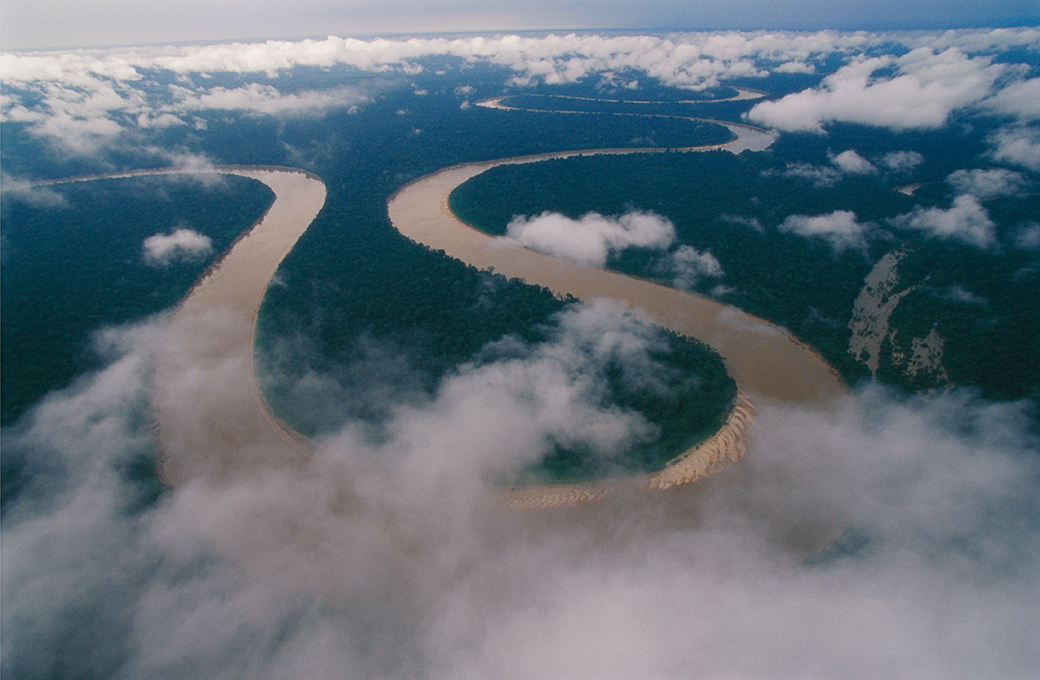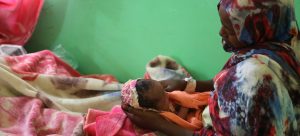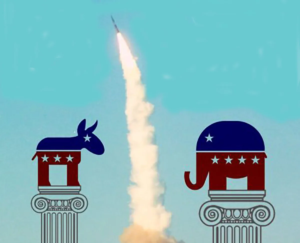“COVID-19 has fertile terrain to spread rapidly among the populations that live in Amazonia,” says president of prominent Brazilian rights group.
Brazilian officials and rights activists are warning of an impending public health calamity as reports emerge of the first deaths linked to the coronavirus among highly vulnerable indigenous populations across the Amazon region.
Health workers in the northern state of Roraima reported on April 9 that a Yanomami adolescent had died of COVID-19, heightening concerns that he may have spread the disease to scores of friends and neighbors since developing symptoms three weeks ago. The youth had moved back and forth through an area rife with wildcat gold miners, and it’s unknown where or from whom he contracted the sickness. (See how coronavirus has spread around the world.)
The case marks the second death of an indigenous person in Brazil. The total number of confirmed infections among the country’s tribes now stands at seven, scattered across three Amazonian states. They include four Kokama relatives infected in the western state of Amazonas by a doctor from the indigenous health service who had recently returned from a conference in southern Brazil and failed to observe self-isolating protocols.
In the north-central Amazon state of Pará, post-mortem tests ordered by investigators confirmed that an 87-year-old Borari woman had died of COVID-19. Mourners turned out in droves for the woman’s funeral in late March, unaware that she carried the deadly virus and could transmit the disease. The attendance of hundreds at the ceremony has stoked fears that many more cases will surface in the days ahead, potentially overwhelming already fragile health care systems in the region.
“Owing to the high degree of movement of people from one state to another in the Amazon, together with a lack of public policies…COVID-19 has fertile terrain to spread rapidly among the populations that live in Amazônia, which could lead to disaster in the short and medium term,” said Roque Paloschi, archbishop of Porto Velho, Rondônia and president of the Catholic rights group Indigenist Missionary Council.
Brazil’s Federal Public Ministry, as the office of the federal public prosecutor is called, warned on April 8 of the “risk of genocide” amid allegations that FUNAI, Brazil’s indigenous affairs agency, had done little to protect native communities from the coronavirus contagion. The Federal Public Ministry also repeated its call for the immediate removal of Ricardo Lopes Dias, an evangelical missionary appointed in February to head FUNAI’s Department of Isolated and Recently Contacted Indians.
Dias is a veteran pastor of the fundamentalist New Tribes Mission, founded in Los Angeles in 1942 with the goal of evangelizing isolated tribes in South America. His appointment to the sensitive FUNAI post triggered concerns that he would steer the department away from its strategic role of shielding isolated tribes from the forces of the outside world.
Through decades of painstaking work, field agents with FUNAI, have confirmed the existence of 28 communities living in extreme isolation in the Brazilian Amazon, and there may be as many as 80 more. Since 1987, federal policy has barred outsiders from entering the territories where isolated groups are known to be, principally to protect the tribes from communicable diseases against which they have little or no immunological defense.
Critics fear that Dias will turn a blind eye to missionaries and profit-seeking groups who breach the boundaries of the territories that harbor these groups, leaving them exposed to contagion and dispossessing them of their lands and traditions.
Dias dismissed the allegations, insisting that his department continues to operate 21 outposts that control access to the lands where isolated groups are present.
“FUNAI’s commitment to the protection of Isolated and Recently Contacted Indigenous Peoples remains firm,” he wrote in an email to National Geographic. “We are following the guidelines of the competent health authorities, we are taking action to manage the global health crisis in the best possible way.”
The case of the virus-stricken Yanomami teenager has touched an especially raw nerve among tribal leaders and activists. Some 22,000 Yanomami live in far-flung communities in rugged upland jungle astride the Venezuela border. Many of their villages have little or no contact with the outside, but their sprawling reserve has been illegally infiltrated by thousands of gold prospectors, posing a grave threat to the tribe. Yanomami leaders have been pleading with officials for weeks to expel the miners. The youth was from a riverside community overrun by a string of mining encampments.
“You should do your work to avoid the penetration of the epidemic into our homes along the pathways opened by the non-indigenous invaders,” warned the Hutukara Yanomami Association in an open letter on March 19 to federal health and indigenous affairs officials.
Activists are particularly concerned over the fate of the settlement of Moxihatetema, whose several dozen inhabitants have assiduously shunned contact with outsiders, even with other Yanomami communities. (Read more about Moxihatetema here.) Prospectors found gold a few years ago just 18 miles from the village, and even before the threat of COVID-19, Yanomami leaders feared that the community could be wiped out by contagion introduced by the miners.
Satellite imagery reveals that the coronavirus outbreak appears to have done little to dampen mining operations in Yanomami territory, but Dias says his department will soon open two more outposts to control the influx of miners. Even so, the government of President Jair Bolsonaro is pushing to legalize mining inside indigenous lands across the Amazon. (Violence escalates for indigenous communities as Brazil moves to weaken FUNAI.)
“THE ONLY CONTINGENCY PLAN”
Experts say that now more than ever, keeping remote indigenous communities separated from outsiders is the best way to safeguard them. “In my opinion, the only contingency plan that would guarantee the survival of these groups is the expulsion of invaders from these areas, and the protection of all lands where there are indications of the presence of isolados,” said Douglas Rodrigues, a specialist in indigenous health care from the Universidade Federal de São Paulo. Rodrigues has worked in native Amazonian communities for the past 40 years. “It’s the duty of the Brazilian government,” he said.
Rodrigues noted that containing a contagion once it has entered a traditional indigenous village with its communal dwellings is all but impossible. “Extended families live together in the houses, with many people, and there is widespread sharing of objects and food,” he said.
In the absence of robust government action, some tribes have been organizing to halt the spread of the pandemic. Along the Xingu River in the central Amazon, the Kayapó have reached an agreement with miners to cease their operations and withdraw from their territory. Along the Tapajós River in the state of Pará, the Muduruku have been posting placards prohibiting entrance to unauthorized visitors. Vigilance patrols have redoubled their efforts to protect the Raposa do Sol Indigenous Territory in Roraima, even while patrol members practice social distancing among themselves.
But reports from elsewhere suggest that illegal miners, loggers, and land grabbers may be using the health crisis as cover to step up incursions into indigenous territories. In recent days, the snarling of chain saws and roar of machinery have resounded through the forests of the Karipuna tribe in the state of Rondônia. The Indigenous Association of the Karipuna People said tribal members watched helplessly from the distance as the outsiders brazenly cleared land within the boundaries of their territory. (Coronavirus may also sheild poachers in Kenya.)
On March 31, Zezico Rodrigues, a leader of the Guajajara people, was found shot dead outside his village in the Arariboia Indigenous Territory in Maranhão. Investigators have yet to produce a suspect, but the Guajajara have been locked in a war with illegal loggers that has left five of its members dead since last November.
Might Bolsonaro’s supporters see in the health crisis a silver lining—an unexpected opportunity to push aside the isolated tribes and grab their resources?
“I think that could be a possibility to be considered, taking into account the government’s failure to implement protection measures for the indigenous populations in a timely way,” said Sydney Possuelo, retired FUNAI veteran and principal architect of Brazil’s long-standing policy to keep outsiders apart from Brazil’s uncontacted tribes—a policy that still stands, despite Bolsanaro’s avowed intention to integrate the groups into the national society and exploit the riches in their lands.



